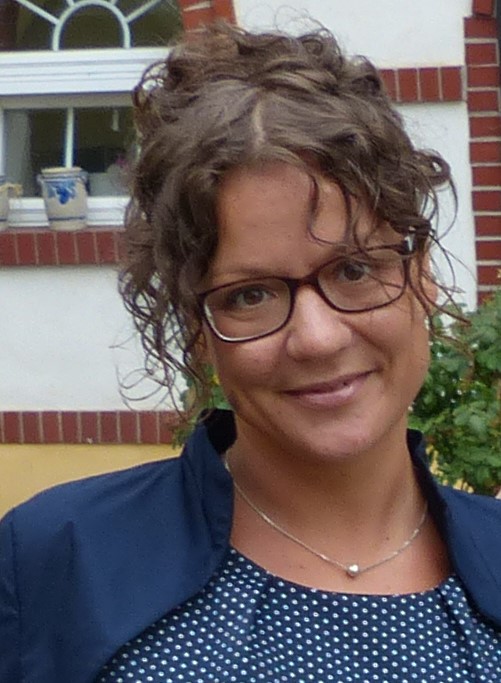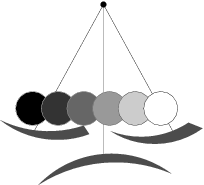Recent
Publications and Speeches
Newsletter
News
Stopping Biodiversity Loss, Human Rights, and International Environmental Law - our Biodiv Constitutional Lawsuit as "World Premiere"
The CBD as well as (national and transnational) human rights contain an obligation to halt biodiversity loss since 1993 at the latest, which has been continuously violated
ever since. Governments can also be sued on this basis. We show this in a new international paper: here
and in our biodiv lawsuit against the German (and indirectly the EU) legislator: here.
Negative Emissions: Forests, Peatlands - and Geoengineering?
Even with zero fossil fuels and greatly reduced animal husbandry, residual emissions remain that must be compensated - even if sufficiency can make this amount of emissions
smaller than the IPCC assumes. This requires above all the regulation of forests and peatlands (which are also central to biodiversity protection). Here, economic instruments and
regulatory law relate to each other differently than they often do. Three international articles explore this - on forests,
on peatlands and on the very problematic large-scale BECCSand other
kinds of geoengineering.
Paris Target, Human Rights, and our Groundbreaking Constitutional Court Verdict on Unambitious Climate Protection and Precautionary Principle
German and EU climate policy is contrary to international law and constitutional human rights. Even the unambitious targets themselves are illegal. More on this in our new
legal analysis, including critical perspectives on IPCC AR6 here. In April 2021, we won a groundbreaking lawsuit at the
German Constitutional Court. See on this in Nature Climate Change, in
The Environment and Sustainability.
Economic Instruments for Phosphorus Governance - Climate and Biodiv Targets
The existing legal framework on P is strongly characterized by detailed command-and-control provisions and thus suffers from governance problems such as enforcement deficits,
rebound and shifting effects. Our new paper focuses on how these challenges could be addressed by economic instruments. The article highlights not only the impact of the
instruments on P management, but also on adjacent environmental areas. We pay particular attention to the governance effects on reaching international binding climate and
biodiv goals: here.
Land Use, Livestock, Quantity Governance, and Economic Instruments
The production of animal food products is (besides fossil fuels) one of the most important noxae with regard to many of the environmental problems, such as climate change,
biodiversity loss or globally disrupted nutrient cycles. This paper provides a qualitative governance analysis of which regulatory options there are to align livestock farming
with the legally binding environmental objectives, in particular the Paris Agreement and the Convention on Biological Diversity: here.
Read all news
Jessica Stubenrauch

* Dr. agr. Dipl. Geogr. Dipl. Finw. Jessica Stubenrauch* is a member of the Research Unit Sustainability and Climate Policy since 2012. Her main focus within transformative governance research is on sustainable land use, which combines efficient agricultural production with the protection of natural resources such as soil, water, climate and biodiversity. In her dissertation in cooperation with the Leibniz ScienceCampus Phosphorus Research in Rostock, she focussed on sustainable Phosphorus Governance from a cross-national perspective between the industrial nation Germany/ the EU, the emerging economy Costa Rica and the developing country Nicaragua. Questions of sustainable land use, closed nutrient cycles and interlinked soil, climate and biodiversity protection were considered comparatively. Currently, Jessica Stubenrauch is a post-doctoral researcher in the project InnoSoilPhos (Innovative solutions to sustainable Soil Phosphorus management). The research on effective policy instruments to implement sustainable agriculture systems with closed nutrient cycles in a post-fossil society is deepened. Apart from that, Jessica Stubenrauch is involved in policy consulting projects of the FNK in the field of governance research on plastics and geoengineering. As a member of the Friends of the Earth Germany and co-founder/ chairwoman of the Leipzig Food Policy Council, Jessica Stubenrauch is also engaged voluntarily in the field of environmental protection and the creation of sustainable agriculture and food systems. Interlinked topics such as effective climate protection and possibilities to steer the needed transition to a post-fossil society are also reflected in her voluntary work. She is vice-spokesperson of the working group on International Environmental Policy at Friends of the Earth Germany (BUND).
Publications
- Innovative Phosphorus Governance: How to Address Recurring Regulatory Shortfalls, in: Ginzky, H. (eds.) International Yearbook of Soil Law and Policy, Vol. 5, 2021 (accepted).
- Sustainable Phosphorus Management in European Agricultural and Environmental Law, in: Review of European, Comparative and International Law 2020 (29), S. 107-117 (together with Beatrice Garske und Felix Ekardt).
- The Common Agricultural Policy beyond 2020: A critical review in light of global environmental goals, in: Review of European, Comparative and International Law, 2020 (00: 1– 12) (together with Katharine Heyl, Tobias Döring, Jessica Stubenrauch und Felix Ekardt).
- Land Use, Livestock, Quantity Governance, and Economic Instruments—Sustainability Beyond Big Livestock Herds and Fossil Fuels, in: Sustainability, 2020 (12:2053), S. 1-27 (together with Antonia Weishaupt, Felix Ekardt, Beatrice Garske und Jutta Wieding).
- Plastic Pollution in Soils: Governance Approaches to Foster Soil Health and Closed Nutrient Cycles, Environments 2020 (together with Felix Ekardt)
- Kunststoff-Governance im europäischen Kreislaufwirtschafts- und Stoffrecht, in: Zeitschrift für Umweltrecht 2020, Heft 4, S. 215-224 (together with Beatrice Garske, Felix Ekardt, Carla Fee Weisse und Melanie Lorenz).
- Kunststoffe in Meeren und Böden: Regulierungsansätze im Wasser-, Naturschutz-, Bodenschutz- und Agrarrecht, Teil 1, in: Natur und Recht 2020 (4:42), S. 395–402 (together with Beatrice Garske und Felix Ekardt).
- Kunststoffe in Meeren und Böden: Regulierungsansätze im Wasser-, Naturschutz-, Bodenschutz- und Agrarrecht, Teil 2, in: Natur und Recht 2020 (4:42), S. 457–464 (together with Beatrice Garske und Felix Ekardt).
- Peatland Governance: The Problem of Depicting in Sustainability Governance, Regulatory Law, and Economic Instruments, in: Land 2020 (9:83), S. 1-24 (together with Felix Ekardt, Benedikt Jacobs und Beatrice Garske).
- Phosphor-Governance in ländervergleichender Perspektive – Deutschland, Costa Rica, Nicaragua. Ein Beitrag zur Nachhaltigkeits- und Bodenschutzpolitik; Beiträge zur sozialwissenschaftlichen Nachhaltigkeitsforschung, Bd. 29, 2019, metropolis Verlag, Marburg.
- Sustainable Land Use, Soil Protection and Phosphorus Management from a Cross-National Perspective, Sustainability, 2018, 10 (6), 1988, (together with Beatrice Garske und Felix Ekardt).
- Landnutzung und Phosphor in der EU, Deutschland und Mittelamerika – rechtsvergleichende Perspektiven, Zeitschrift für Europäisches Umwelt- und Planungsrecht, 2018, 16 (3), S. 325-335, (together with Beatrice Garske und Felix Ekardt).
- Landnutzungs- und düngungsbezogener Klimaschutz in europa- und völkerrechtlicher Perspektive, in: Zeitschrift für Umweltrecht 2018, Heft 3, S. 143-154 (together with Felix Ekardt, Jutta Wieding und Beatrice Garske).
- Agriculture related Climate Policies – Law and Governance Issues, in: Carbon & Climate Law Review, 2018, 12 (4), S. 316-331 (together with Felix Ekardt, Jutta Wieding und Beatrice Garske).
- Phosphorus Governance, in: Schnug, Ewald/de Kok, Luit (Hg.): Phosphorus 100 % Zero, Berlin 2016, S. 331-347 (together with Felix Ekardt, Beatrice Garske und Jutta Wieding).
- Legal Instruments for Phosphorus Supply Security, Journal for Environmental and Planning Law, 2015, S. 343-361 (together with Felix Ekardt, Beatrice Garske und Jutta Wieding).
- Landwirtschaftskonzept für Sachsen – BUNDposition, Dresden 2015 (together with Felix Ekardt und Beatrice Garske)
- Schadstoffanreicherungen in Böden als Governance- und Rechtsproblem – das Beispiel Cadmium: Zugleich zu einigen Grundproblemen von Ordnungsrecht, JbUTR 2013, S. 173-187 (together with Felix Ekardt).
- Ein Menschenrecht auf Wasser, Zeitschrift für Umwelt- und Planungsrecht, 2010, Heft 11, S. 521-542
Presentations
- How to Govern Plastics Effectively by Economic Policy Instruments (presentation at GCET21: Twenty-first global conference on environmental taxation, online, September 2020)
- Agricultural self-sufficiency: potentials and perspectives (moderation of the workshop at Future for all. just. ecological. achievable, Leipzig, August 2020)
- Phosphor: Problem, Transformation, Governance (presentation at Phosphorus Workshop at Wissenschaftszentrum Umwelt, University Augsburg, March 2020, together with Felix Ekardt)
- Climate, Social Justice and Limits to Growth (moderation of the discussion: How can one imagine social participation, labour market and pension system when the growth-driven society is relativized or even overcome for ecological reasons? at public private school/ Fridays for Future at University Halle, November 2019)
- Agriculture-related Climate Policies on EU and Global Level (presentation at 7th European Environmental Law Forum, Utrecht, August 2019, together with Felix Ekardt)
- Phosphorus-Governance from a Cross-National Perspective (presentation at 9. International Phosphorus-Workshop, Zürich, July 2019, together with Katharine Heyl)
- EU versus Lateinamerika: Kann von Entwicklungsländern im Umgang mit tierischen Nahrungsmitteln gelernt werden? (presentation at Wittenberg-Konferenz: Weniger und besser. Strategien zur Reduktion tierischer Nahrungsmittel, April 2019)
- No Net Loss for Biodiversity: Pricing Nature vs. Pricing Fossil Fuels (presentation at European Environmental Law Forum, Como, September 2018, together with Felix Ekardt)
- Landwirtschaft in Mittelamerika und Deutschland und ihre ordnungsrechtliche Regulierung im Vergleich (presentation at Wittenberg-Konferenz: Offene Fragen einer nachhaltigen Landwirtschaft, June 2018)
- Phosphorus Governance from a Cross-National Perspective (presentation at 3rd European Sustainable Phosphorus Conference (ESPC 3), Helsinki, June 2018)
- Governance Aspects of Soil-P-Management (presentation at BonaRes-Conference, Berlin, April 2018, together with Felix Ekardt and Beatrice Garske)
- Völker- und europarechtliche Zielvorgaben zu einschlägigen Umweltproblemen (presentation at Wittenberg-Konferenz: Nachhaltige Landwirtschaft und die Zukunft tierischer Nahrungsmittel, April 2017, together Caroline Douhaire).
- Fósforo y Uso de la Tierra - Posibilidades de crear una Agricultura Sostenible en el Futuro (presentation at Nitlapan-Workshop Central American University (UCA), Managua, December 2016)
- Cadmium in Böden, Pflanzen und Nahrungsmitteln (presentation at German Soil Protection Commission, March 2011)
- Zukunftsfähige Landwirtschaft – Maßnahmen für eine wirksame Agrarwende (presentation at Forum Ernährungsrat Leipzig: Nach der Wahl – Agrarwende in Sachsen, October 2019)
- Forum Ökologisch-Soziale Marktwirtschaft e.V. (FÖS) (moderation of the workshop „Ökonomische Klimaschutz-Instrumente besser verstehen und kommunizieren. Im Dialog: Klimaschutz und Marktwirtschaft“, November 2018)
- Globalisierte Agrar-, Düngemittel- und Lebensmittelmärkte – Folgen für die Ernährungssouveränität und die Umwelt“ (presentation at Grüne Jugend, Chemnitz, Juli 2018)
- Eine Welt voller Kunststoff, (public lecture to „Plastikatlas“, multiple in 2019 und 2020 online)
- Europäische Agrarpolitik verstehen und selbst aktiv werden (public lectures to Agraratlas, multiple in 2019 and 2020 online)
- Umweltfolgen tierischer Nahrungsmittel (public lectures to „Fleischatlas“, multiple in 2018 and 2019)
- Daten und Fakten über die Agrar- und Lebensmittelindustrie (public lectures to „Konzernatlas“, multiple in 2018)




